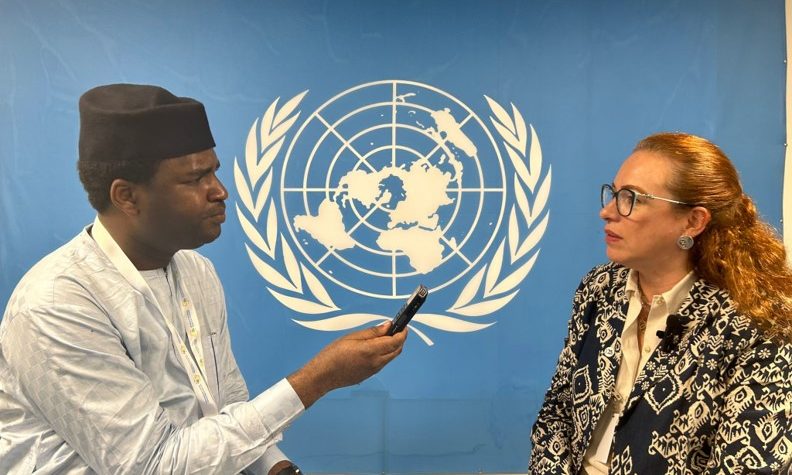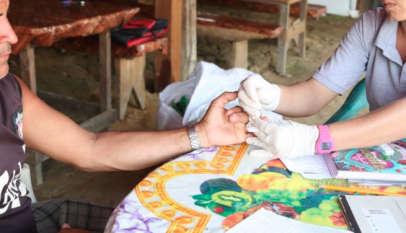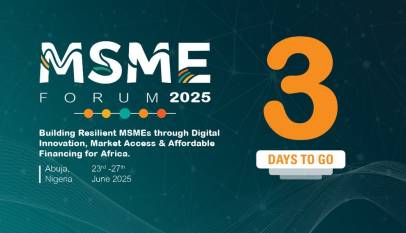INTERVIEW | “Why UN Needs a Built-in Mechanism for Civil Society Inclusion” – Maria Espinosa
Maria Fernanda Espinosa, President of the 73rd Session of the UN General Assembly (UNGA) cum Executive Director of GWL Voices for Change and Inclusion, an advocacy group of 70 global leaders advocating for multilateralism and gender equality, bares her mind about the 69th UN Civil Society Conference recently held in Nairobi, Kenya.
Newspage: We are in Nairobi, Kenya for the 69th UN Civil Society Conference, the first time it has been happening in Africa and the Global South. As one of the key organizers of the conference, what do you want to achieve with this conference?
Espinosa: There are more than 2000 civil society organizations present in Nairobi and most of them are from the so-called Global South, just as more than half of the participants are women. It is the first time in 69 years that the conference is being held in Africa, in a country of the global majority. That automatically makes it top of the agendas of leaders and thinkers from the global majority countries.
So, what we expect to see is a strong and bold list of recommendations from civil society to feed into the process of the Summit of the Future (SOTF) and particularly on the three outcomes to be adopted during the SOTF, namely the Pact of the Future, the Declaration on Future Generations and the Global Digital Compact.
We have witnessed from the delegates an incredible energy and a genuine commitment to contribute in a constructive manner to the SOTF and a display of incredible intellect and creative ideas that are really groundbreaking. The ideal way forward would be ensuring these groundbreaking ideas make their way into the SOTF, through the Pact of the Future and the other two instruments to be adopted at the Summit.
Newspage: Beyond Nairobi, what do you hope to see in terms of collaboration and synergy between the UN and the civil society coalitions involved in organizing this conference, in terms of greater advocacy and meaningful engagement as we move towards the SOTF in September?
Espinosa: I think the process leading to the SOTF has been extremely inclusive with many consultations and town halls amplifying voices from the civil society across every step of the process. Some say it is not enough — we want to see more from civil society, which I think is fair. Yet, I also think the modalities, resolutions and the way the co-chairs of the conference handled the process has been extremely inclusive.
Seeing the two co-chairs [Nudhara Yusuf and Carole Osero-Ageng’o] attending different meetings throughout the conference, running from one session to the other with the sole purpose of listening to the open and frank discussions with the civil society is a great indicator of a networked and inclusive multilateral system.
Newspage: The advocacy for an inclusive multilateral system and UN reforms has been ongoing for a long time. Unfortunately, not much has changed so far. How optimistic are you about the ability of this current process, including the SOTF and the Pact of the Future, to translate into a more inclusive global order?
Espinosa: The UN does not have a built-in, predictable mechanism for civil society inclusion, except for the NGOs accredited to the Economic and Social Council (ECOSOC), which have limited space to participate in the UN process. This means every time you have to negotiate the modalities and the resolutions for the civil society’s involvement in the UN’s work.
It is desirable to have publicly available and predictable built-in mechanisms for civil society participation in the UN process. And a very good case in point has been the way the consultations on the Pact of the Future have been taking place and the willingness of the two co-facilitators, Germany and Namibia, to accommodate the diverse voices of civil society in the process of crafting the Pact of the Future.
I believe this sets a good standard, yet there is always a need to do more, which is absolutely fair. We need to build on these established good practices and experiences to come up with a good model of participation for civil society and inclusion that will be integrated and built-in into the UN system.
Newspage: You have been engaged with the UN system for a long time, including being the President of the UN General Assembly (UNGA). Is this particular conference in Nairobi different from previous conferences? Do you have any cause for optimism?
Espinosa: I was at the 68th UN Civil Society Conference at Salt Lake City, USA, as President of the General Assembly, and it was powerful and very well attended. In fact, I received the outcome of the deliberations and felt a sense of responsibility in terms of the way forward. The outcome was a renewed commitment to the Sustainable Development Goals as well as the financing for development and the climate agendas.
Yet, I believe the beauty of this conference is that it’s the first time the UN Civil Society Conference takes place in a country of the global majority. And it is the first time that the conference was connected to a very specific intergovernmental process, which was the Summit of the Future and the Pact of the Future. This gives us a sense of purpose, which makes the energy and the intellect converge around a very specific issue.
What I have seen so far is a high level of intellect and innovation. And I really hope that all the great contributions of civil society really feed into the Pact of the Future, and we will eventually feel proud of the outcome of the SOTF. It is worthy of note that summits do not change the world, they do not solve all the problems of the world, but they set the roadmap; they are a compass and spaces for commitments for actions.
Editor’s Note: This interview has been edited for length and clarity.














